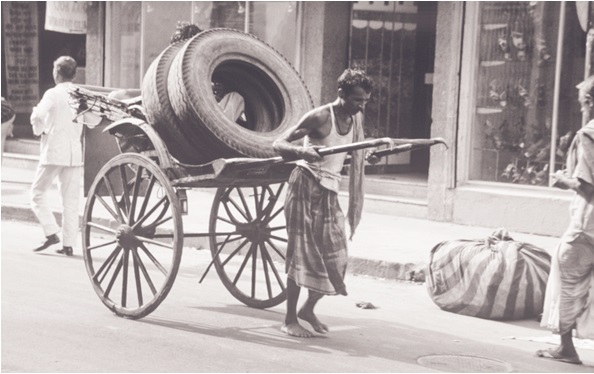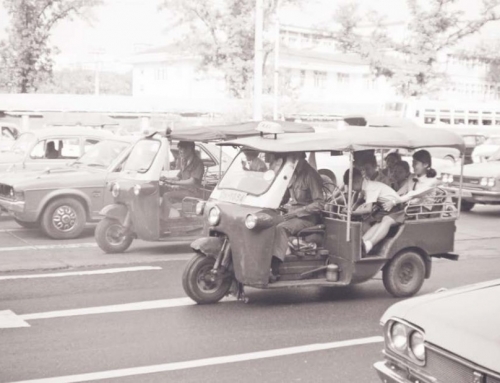With this issue, the University of California Transportation Center marks the fifteenth year of publishing ACCESS magazine. However, our celebration is tinged with sadness, because the founder and editor of ACCESS is no longer with us: Melvin M. Webber passed away on November 25, 2006. We miss him.
I met Mel long after he’d “retired” from teaching, and I knew very little about his long career in planning or of the widespread influence of his writings. He wasn’t a person to trumpet his achievements; he was more interested in hearing what others thought about whatever issue was in front of us, be it an essay we were editing or what exactly the construction workers were up to outside our office. I was very lucky to be able to work with Mel every day, and although he slowed down considerably towards the end, he never really stopped working on ACCESS.
He had very high standards for this magazine— he wanted it to be fascinating and useful to every kind of reader. Translating academic prose into something interesting to lay readers was sometimes a great challenge. We were helped by the many excellent writers among our researchers, who over and over again showed us how well it could be done. But these good writers also spoiled us, a little bit. Not all our brilliant thinkers can easily express their ideas to people less schooled in their disciplines than they—people like me. But I soon learned, under Mel’s gentle tutelage, that my own ignorance could be a useful tool for an editor. Every day I got to see his curiosity at work; he had a way of asking questions that always surprised, and showed that he listened closely and deeply to the answers.
Mel could be very frank about essays he didn’t think would work, but sometimes he recognized something in an article that seemed, at first, imperceptible. He would take up his editor’s pencil and expertly cut through technical jargon and verbosity, paring an essay until he exposed the heart of an idea. His insistence on clear, simple writing sometimes perplexed authors who were used to adding words in an attempt to clarify their thoughts, but reactions over the years to the high quality and readability of ACCESS prove how right he was.
This special issue of ACCESS is a tribute to Mel Webber’s work: to his teaching, his writing, and the influence he’s had on the field of planning. In the following pages you will read about Mel from colleagues who knew him at various stages in his career. You will get a sense of what he was like, although the portrait remains, necessarily, incomplete. His interests were wide-ranging and his inspiration felt far outside the arena of his academic work. I hope that we have succeeded, even partially, in doing justice to his warmth, his fairness, and his intelligence.
Mel was a very unassuming person, and we undertook this special issue in tribute to him knowing full well that he would not really approve of all this attention. I dare to imagine, however, that he might have been a little bit pleased with the result. And I promise that with the next issue, ACCESS will continue its mission—publishing high quality research on transportation at the University of California—and hold itself to the highest of standards, set long ago by Mel Webber.
Melanie Curry
Managing Editor






